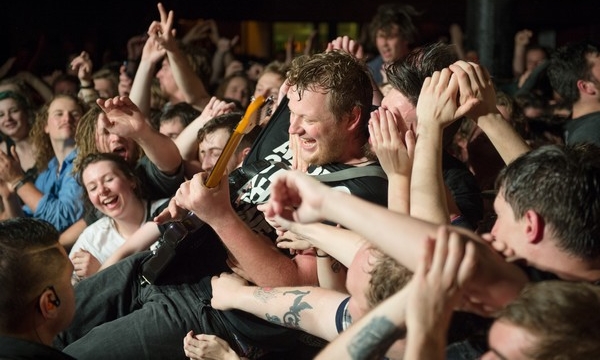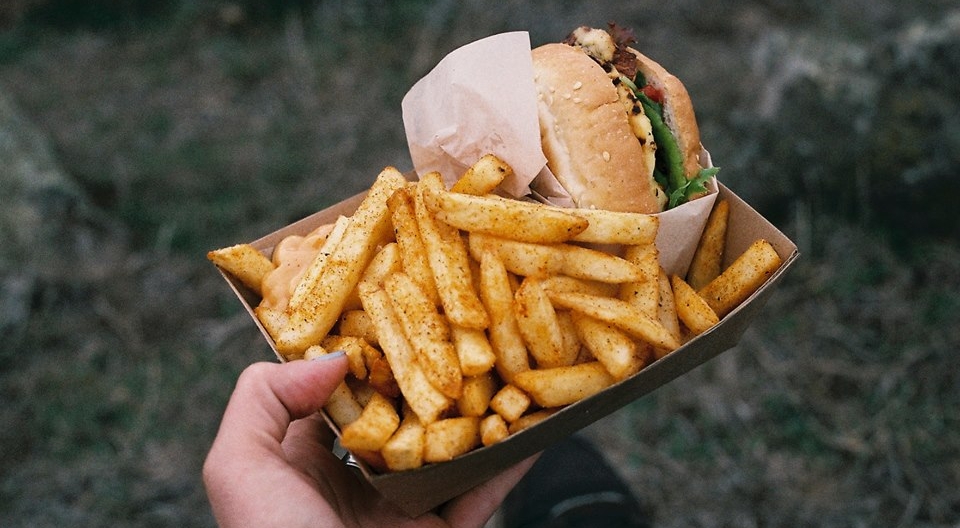Frontman Wil Wagner’s experiences with depression and anxiety are consistently laid out for the audience in a heartbreakingly raw fashion, something he’s happy to do, considering his words provide hope for those in the audience that need it most.
“The fact that I have this relatively small platform, but a platform nonetheless, to talk about that stuff, and make people feel like they aren’t alone in the universe feeling these things, is so important and empowering for me, because I have those bands for me as well. If I’m feeling a certain way, I put that band on, and it comforts me. I listen to the band’s words and it inspires me. And to be that band for one person, I feel like my job on this planet is done.”
Suicide remains the biggest killer of young people in Australia, with suicide in men approximately three times higher than women, consistent across all states and territories, and other Western countries. Despite experiencing high rates of depression and anxiety, men are less likely than women to seek help for these feelings. These hard statistics are something that drives Wagner to continue to write with beautiful self-awareness and honesty, using his music to start a dialogue with the audience about mental health.
“I think especially because I am a big guy, I have tattoos, I’m sort of blokey, I like that I can express those things, and especially get young men to relate to those things as well. I am proudly someone who deals with all of those things in a quiet and extreme way, and sometimes it can have a pretty disastrous affect on me.
“Predominantly our audience is young men between the age of 18 and 25, who would be the least likely people in society to admit they feel anxious or vulnerable. That I can contribute to removing that stigma about being anxious and being sad, I really don’t feel like words can describe how much that means to me, it means the fucking world.”
Wagner’s distinct, eloquently verbose, painstakingly real lyricism is truly in its own league. Over the past 15 years that he’s been making music, his writing style has hardly changed.
“I started writing when I was 12 or 13 as a natural reaction to my bad mental health, to deal with things. I still really try to write things that exact same way, with a lot of honesty and immediacy. If things don’t flow quite perfectly but the meaning behind the words is there, that’s a lot more important to me than the syllables being in sync with the line before and the line after. Though I’ve also really worked on finding ways to use ten words to say something rather than using 100.”
More Scared of You Than You Are of Me, the band’s latest album, showcases the best of Wagner’s writing, with some of his most vulnerable work yet. Tracking an arc of relatable emotions, from the grittiest pain to the happiest of joys, their fourth album stands apart from their previous offerings.
“There’s a very strong narrative that runs through the record, of a tumultuous relationship I had. That’s something I’ve always wanted to do, but I guess I didn’t have the proper life experience. Having a crazy, really intense and emotionally damaging relationship gave me the material and the ammunition to create this.”
The record, the band’s first since 2014’s Throw Me in the River, and their first released via their recently launched label Poolhouse Records,is true to The Smith Street Band’s sound. But having more time to work on the album, spending six weeks in California at Panoramic House alongside producer and longtime friend Jeff Rosenstock, meant it’s something they really refined in ways they couldn’t previously.
“We really had time to bring the songs to life, and work with Jeff a lot more to flesh things out. It’s a more fully realised album than the last. It sounds exactly how I wanted it to sound and it’s an accurate reflection of what was in our heads when we were writing. If it was up to me, it would have been released a week after we finished it. That’s why I’m not the only one who runs the label.”
Wagner talks about the Australian venues for the album tour with awe, thrilled to be playing The Forum in his hometown of Melbourne, where he saw Arcade Fire as a kid. These bigger venues pose new challenges for the self-confessed touring band, something they’re not taking lightly.
“We’ve really tried to up our game. We’re going to try and fill the rooms we’re playing in. The thing about playing in bigger rooms is that you still want to feel close and personal and intimate, especially for those people who first saw us at The Old Bar or at The Rev.
“I feel like the connection we have is really personal. This is such a wanky thing to say, but I don’t think of the people who listen to our music as fans, a lot of the time. I think they’re just friends who I haven’t met yet.”
The Melbourne shows are often made even more personal through the presence of Wagner’s family, who without fail he will always give a shout out to from the stage, or call them on stage alongside him.
“If you look up #wilwagner on instagram, it’s like 80% my mum. She couldn’t be more supportive. She spent like $150 on merch at the Corner show on the Death to the Lads tour. We’d headed up the guys at the merch table not to sell her merch. So she gave her friend money to go and buy it.
“I feel so fucking lucky that I have completely happy, functional, parents. I understand how rare that is, and how blessed I am to have such an amazing understanding family.”
It’s been five years since the band released Sunshine and Technology, and Young Drunk became their signature tune. Not that long in the grand scheme of things, but long enough to completely change the lives of not only a band of four men, but the friends they haven’t met yet.
“I remember writing Young Drunk. I remember the shitty house and shitty circumstances I was living in, and now I’m in a far better situation in my life. And there are some of those older songs, about partying, getting fucked up, that I now realise I was doing that as a coping mechanism, so I feel a bit iffy singing those lines.
“But being able to sing that song and look out at the way it’s affected people, and also the way that it’s directly affected me, it has this whole other special beauty to it, even if the phrase ‘Tonight I’m getting young drunk,’ doesn’t strike a chord in me in the same way it did when I wrote it.”
Words by Claire Morley
Image by Ian Laidlaw
If you or someone you know is struggling, there are stacks of places to get help. Lifeline is available 24/7 on 13 11 14 or beyondblue on 1300 22 4636. Or you can check out their websites for additional resources.







